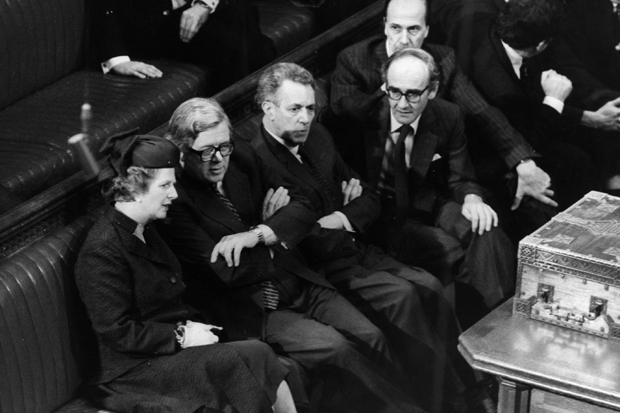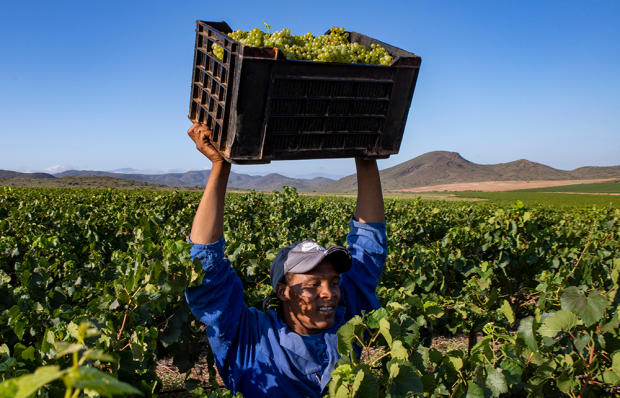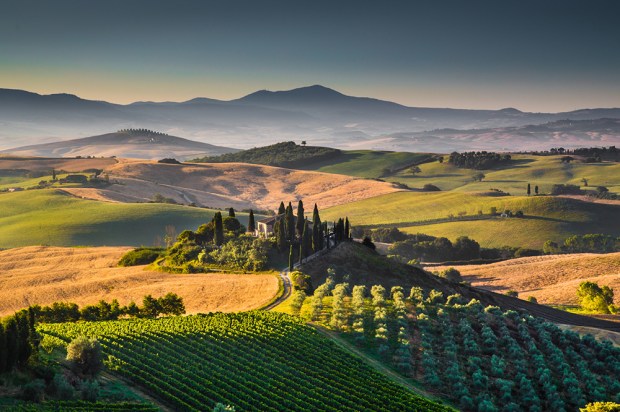As the bottles flowed, the talk ranged, to a serious vineyard, an awesome Field Marshal and a delightful restauranteur. For years, the late Tom Benham ran Monkeys as a club. He cooked game especially well and his game pudding, made of course with suet, was one of the best dishes that I have eaten. As Tom charged a fixed mark-up for wine, the better the bottle, the better the value. He always found space for his friends, although his way of doing so was often ruthless. One would telephone: ‘Completely full — but wait: there’s a name here I don’t recognise. You can have that table.’ I never actually saw him bar the door to the dispossessed, but I suppose I should have felt guilty. It was unfair. So is life.
Nigel Bagnall was as formidable as any British commander since Alanbrooke. He could overawe the likes of Peter Inge and Charles Guthrie. Sir Nigel appointed the now Field Marshal Lord Inge, KG, etc, to be his chief of staff and greeted him by saying: ‘If you don’t have the moral courage to stand up to me, you’ll be no use to me.’ Peter did, and was. Younger officers found him endlessly demanding and sometimes frightening. But he never added to the unfairness of life. If his standards were met, all would be well. But those standards: Baggie, as he was nicknamed when well out of earshot, was a perfectionist pro tem, until they invented something better.
He would have been Chief of the Defence Staff if he had been prepared to stoop to politics. But he was opposed to the nuclear deterrent, and let Margaret Thatcher know. She did not agree. Nor did he think much of John Fieldhouse, the CDS he should have replaced. Oddly enough, Admiral Fieldhouse did not agree either. When Nigel was a corps commander in Germany, John Nott, the then defence secretary, asked him what he would do if, God forbid, the balloon ever went up. ‘Shoot my way through the deserters and the fleeing German civilians in order to reach the front line.’ A man dedicated to his country and the profession of arms, Nigel Bagnall was incapable of equivocation.
That led us on to a family who had been obliged to spend more than four years equivocating and in dangerous circumstances. The Kressmanns make wine in Bordeaux, principally at Ch. Latour-Martillac in Pessac-Leognan. Originally, they were German, which is why they were chosen to act as intermediaries with the German authorities in 1940. I do not know the French equivalent of hospital pass: they received one. Too many concessions, and they would have been stigmatised forever as collaborators; too few would have been a ticket to a concentration camp, while the Germans seized whatever they wanted.
The Kressmanns steered that difficult course successfully, and in 1945, Bordeaux was able to celebrate the liberation with one of the finest vintages of all time. Since then, Latour-Martillac has continued to thrive. It produces both white and red wines. We tried the white ’12: young, sprightly, full of fruit, minerality and promise. We moved on to the ’05: promise achieved, a very good wine that will last for years. Some wines need a fallow interlude between the liveliness of youth and the grace of maturity. The advice was that the Latour-Martillac whites should either be drunk after three years or given ten to come to hand.
The reds tasted like the younger brother of Domaine de Chevalier, and not that much younger. If you enjoy a hint of gravel in your claret, so that the fruit never overwhelms the tannins, you will not be disappointed. Again, there is plenty of ageing potential. In a good year, these are wines to keep. We tasted the ’85 which was impressive: at its peak, but likely to remain there for a decade. We were told that the ’75s are still a delight. Like old soldiers, these wines only fade away slowly, at an advanced age.
Got something to add? Join the discussion and comment below.
Get 10 issues for just $10
Subscribe to The Spectator Australia today for the next 10 magazine issues, plus full online access, for just $10.
You might disagree with half of it, but you’ll enjoy reading all of it. Try your first month for free, then just $2 a week for the remainder of your first year.















Comments
Don't miss out
Join the conversation with other Spectator Australia readers. Subscribe to leave a comment.
SUBSCRIBEAlready a subscriber? Log in